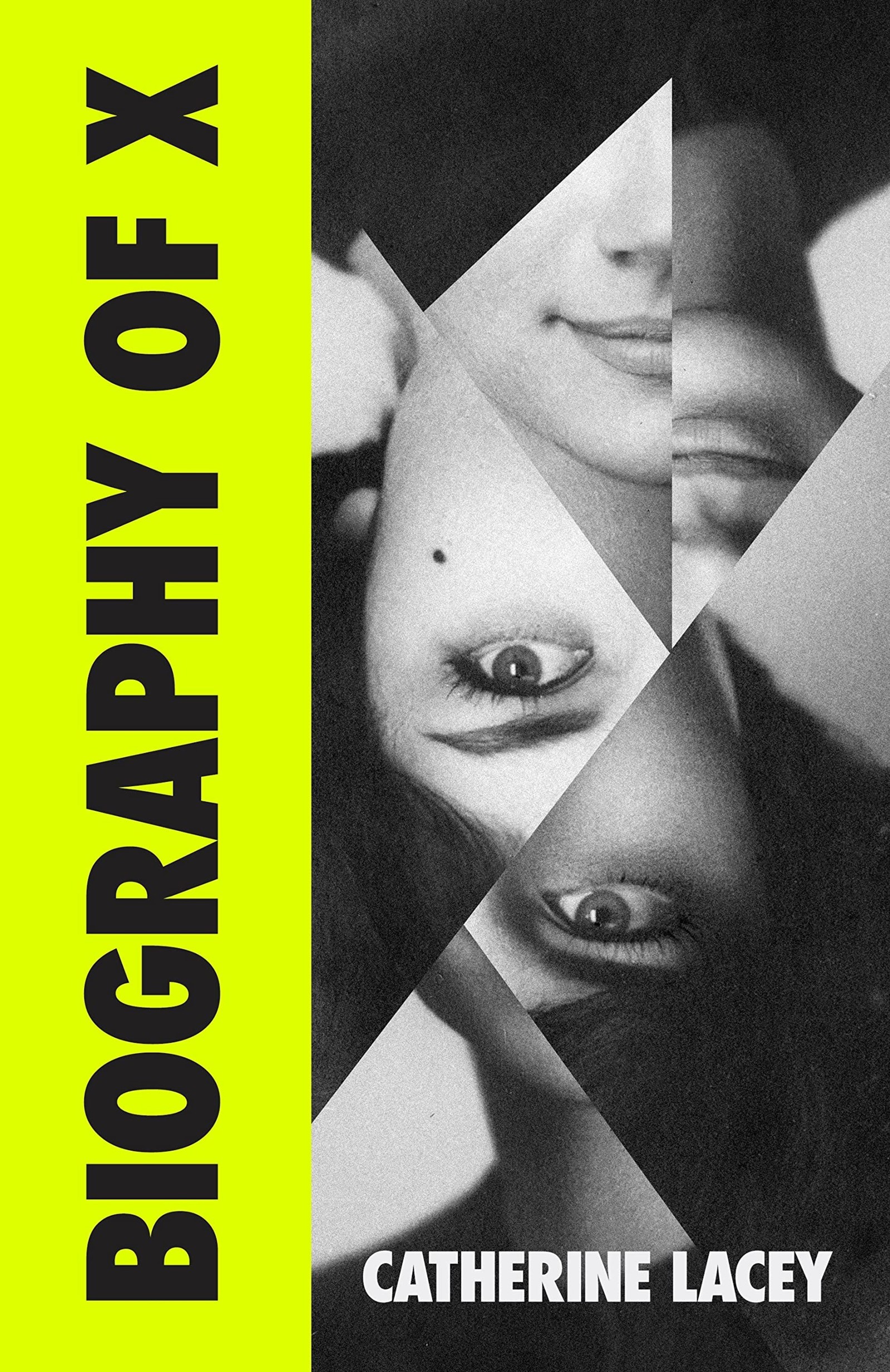By now, you should have heard of ‘X’ – the enigmatic polymath who died unexpectedly on November 11, 1996. Perhaps you knew her from her divisive art work, like 24 Hour Psycho (Alfred Hitchcock’s iconic horror, slowed down to play over 24 hours), or the more controversial Where Are You, Sophie?, in which she covertly stalked French artist Sophie Calle for three days (at one point even hiding under her bed). Perhaps you know her notorious 1980 novel 37, hailed by critics as “more depressing than The Bell Jar”, or her 1989 drag production of A Streetcar Named Desire starring Christopher Walken.
Most famously, there’s her work with David Bowie who – after years of consuming nothing but cocaine and red peppers – collaborated with X on his cathartic 1977 album, Low (she wrote the tracks Be My Wife and Breaking Glass). However, despite Bowie being “charmed” by X’s “antipathy” to the work, the feeling wasn’t necessarily mutual. “Produce a few songs for a pop star and you’ll never hear the end of it,” X said of her time working with both Bowie and Brian Eno. According to her biographer, it was a “frequent complaint”.
You haven’t heard of X, obviously, because none of the above is true. But the biography has still been written. The latest creation by acclaimed American novelist Catherine Lacey, Biography of X is a fake history, written from the fictional perspective of X’s widow, CM. The novel begins shortly after the artist’s death, with CM attempting to deal with her grief by unravelling the mystery of her wife who, while they were together, seemed cold, dazzling and unknowable. The book follows CM as she tumbles into the depths of X’s life, with each new discovery seemingly pushing her even further out of grasp. Every chapter raises a new question: can you ever truly know your partner? How many versions of ourselves do we have to discard in a lifetime? Is seeking a denouement – and attempting to neatly tie up the loose ends that haunt us – ultimately a futile task?
Mississippi-born Lacey has always grappled with these kinds of questions in her work. Her (excellent, deranged) website is scattered with offbeat queries about the human condition, and her previous books have all skirted near similar themes; for example, her award-winning debut Nobody Is Ever Really Missing tells the story of a woman outrunning the past, and raises similar questions about the many lives we leave behind.
Here, she tells us more about the issues that inspire her work.

Dominique Sisley: When and how did you decide that you wanted to write this compromised, fictional biography?
Catherine Lacey: I was a visiting writer teaching at the University of Mississippi in 2017, and part of the deal was that I had to stay in a mansion outside of town. It was John Grisham’s former house and he had donated it to the University, but you had to live in this house by yourself, which was huge and surrounded by all this land. I didn’t grow up in that kind of world, and going from being somebody who was used to living out of suitcases, always in precarious living situations ... I felt almost like I had been widowed. [Laughs].
I remember tromping around the property, going on these weird walks, and there was something about that feeling of isolation and grandeur; of something having been lost, but not even being able to explain what it was. I had already been thinking about the biography as a form, and I had been thinking about what the next book would be, and I wanted it to be a big project. So I had that feeling of dread, combined with a more high-minded, abstract idea of what I wanted to do. I think that’s generally what happens for me: I often have a hypothetical thing I want to do, but it has to intersect with something really personal. It’s strange. Those months were very weird; it was almost as if I was the widow of a very famous person.
DS: The relationship between CM and X doesn’t seem like it was very healthy. What were you trying to explore with their dynamic?
CL: At one point I was really thinking of CM and X as being flip sides of the same coin. While I was writing it, especially, I was thinking of two polarised ways of being, where CM is [the one] trying to pay attention to her partner; she wants to know her but she also feels dwarfed [by her]. So there’s this tension. I think it can happen in any kind of relationship, where one person is maybe more powerful or convincing or charismatic, and they have a kind of largeness to them which means they often choose somebody they can control.
But I also think being controlled or engulfed by someone else can feel powerful. Like, ‘If this really powerful person wants to be with me, I must have something about me’. I think that’s what happens to CM. I think she gains access to a part of herself that’s more ruthless, brave and powerful, but it’s at the expense of everything else. [Laughs]. But you can be transformed by a person like that, and I think it can be both really manipulative and really beautiful.
“I wanted to make a world where two women could be in a relationship, and the fact that they were gay was the least interesting thing about them” – Catherine Lacey
DS: They do seem to be polar opposites of each other. CM is much more introspective; she’s learning about herself and the relationship, but X just wants to keep moving forward.
CL: She has everything figured out. She doesn’t have time to think about herself or whether she could be a better person. All these things have happened to her at a young age, and she’s now become this person that just doesn’t have the bandwidth to [be introspective]. She had to make herself into this hideous monster in order to survive. You know, those people are really fascinating to me – for better or worse, I have often found myself around people like that, who are so damaged and are never going to change. I’m just fascinated by the mechanism of their brains. They have to become strong in order to overcome something, but then they become the disaster they were trying to flee. And I think X is that sort of person – I think any of us, in small or large ways, can be that kind of person, recreating the thing that we’re trying to recover from.
DS: X is an artist, author, filmmaker and musician, working with all these well-known figures of the 20th century. Why did you choose that era, why did you choose those professions?
CL: I wanted to work with real people and events, and there are so many different movements in the mid-20th century that I saw some sort of connective tissue between them. Also, not a lot of women and queer people got to be kind of front and centre in that time period, despite that time in America being really inherently queer. So I wanted to put this queer woman in the middle of it, to be able to do things that somebody like her couldn’t have been able to participate in.
DS: One way you do this is by placing the novel in a parallel universe. In your book, the US is split into territories: the South is this right-wing theocracy, while the North is this ultra-progressive, socialist utopia. Except the latter still has issues (you say “tenacious sexism still exists”, despite everything).
CL: I wanted to make a world where two women could be in a relationship, and the fact that they were gay was the least interesting thing about them. I wanted X to make anything she fucking wanted, and the fact that she’s female was the least interesting thing about her. I think that kind of world could have existed in this time period, but only at a cost somewhere else. I just don’t believe in utopia, right? I don’t believe that if you get the official elected that you want in your town, all your problems are going to be solved. I don’t believe that exists. I think that as human beings, we create problems for ourselves. People are greedy and things are complicated. We’re idealistic, then those ideals crumble, and it’s this constant cycle.
“I feel like letting your emotions get the best of you is nice sometimes. It can be really freeing to let yourself completely feel the loss of something, because [in that process] you’re letting yourself feel what was lost”
DS: What really struck me about this book, and something that I’ve been thinking about a lot recently, is this idea of multiple selves. Sometimes I walk past somewhere I used to live or work, and I’ll suddenly be hit by a wave of forgotten memories and a feeling of loss – like oh, that person doesn’t exist anymore.
CL: Are you in your thirties?
DS: Yeah.
CL: I feel like that’s when it starts. And I think it’s hardest to digest in relationships. I’ve had it with friends that I don’t speak to anymore: I think about the years we spent together doing all these things and how that’s just gone. I can’t access that person. We’re different people, and we can’t go back. It’s the same with relationships: I’m friendly with my ex-husband but we don’t really see each other, and at one point we were each other’s entire world. You reach a point in your life where you don’t actually live the same life anymore. I did read an article in The New Yorker recently, by Rachel Aviv, about [the philosopher Agnes Callard], who stayed in the same house with her ex-husband, kept raising their kids together, and then moved her new husband in. On the one hand, it seems beautiful – how wonderful that you can start a new life and still be forever in conversation with the older parts of your life? On the other hand, I think it’s deluded – we don’t get to just hold on to everyone that’s ever been meaningful to us and just live in a huddle, keeping on adding people.
DS: The book also grapples with the urge to narrativise our lives, to make everything tie neatly together. Do you believe that it’s ever possible to let go of that way of thinking?
CL: It’s not possible for me. I definitely know some people that are very single-minded about moving on and not letting their emotions get the best of them. But I feel like letting your emotions get the best of you is nice sometimes. It can be really freeing to let yourself completely feel the loss of something, because [in that process] you’re letting yourself feel what was lost. You can’t have pleasure without pain, you can’t experience joy without pain. The memoirist Mary Karr gave some advice to a friend of mine about writing about divorce: she said that the only way to write about it is to actually write about the happy marriage, not about the crazy assholes that two people can become at the end of it. You have to write about the thing that was lost. You have to write about the beauty at the beginning of the marriage, at the beginning of the love. The reason something is painful is because something meaningful was lost, right?
Biography of X by Catherine Lacey is published by Granta and is out now.
